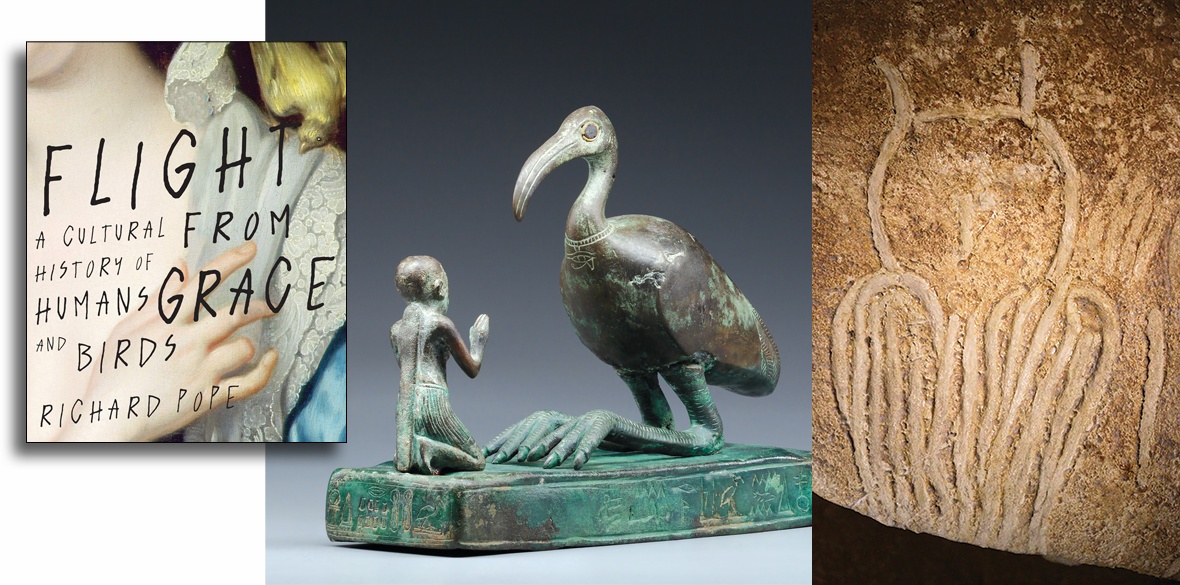This is the last article you can read this month
You can read more article this month
You can read more articles this month
Sorry your limit is up for this month
Reset on:
Please help support the Morning Star by subscribing here
Flight from Grace: A Cultural History of Humans and Birds
by Richard Pope
(McGill-Queen’s University Press, £29.99)
UNSURPRISINGLY, birds have fascinated humans from the time we began to walk on two legs. Not only do they have the amazing power of free flight which we do not possess, they can be extraordinarily colourful.
In the earliest palaeolithic cave paintings, there are depictions of birds, albeit generalised images. In early Egyptian paintings they are already being portrayed as separate species and are, as in other cultures too, deified.
Yet we have not only revered and admired birds but also hunted and killed them relentlessly and in enormous numbers. We have driven them from traditional habitats and some to extinction.
In Victorian times, those pioneering explorers and keen amateur naturalists shot millions of them in the name of science, often to be stuffed and placed as trophies in glass cases. Birds were also killed in their hundreds of thousands for the fashion industry and their colourful plumage was used as millinery adornments, clothing accessories or feather dusters.
Only in very recent times have we come to see birds as invaluable natural companions and to admire them for themselves as free and wild creatures.
An eclectic meditation on our relationship with birds as seen through our culture over the millennia, Richard Pope’s book Flight from Grace takes us on an art-historical journey to demonstrate how birds have played an integral and important role in our artistic depictions of the natural world and how they became part of our mythology.
After all, what are angels but birds in human form? To be able to fly unaided has been a human dream from time immemorial.
In the final chapter, Pope asks what went wrong — how could humans have done such awful things to birds in spite of our longstanding reverence for them? Here he places human beings firmly in their rightful place as animals living alongside and as part of the world as a whole and wonders at what Desmond Morris called “our strange complacency that ... there is something special about us, that we are somehow above biological control.”
There is indeed a price to be paid for our harming nature and divorcing ourselves from it. As many recent studies show, an environment with a devastated countryside and absence of birds can seriously affect our mental health.
The lack of bird song signals despair, desolation and loneliness — a birdless world is indeed one without joy.










